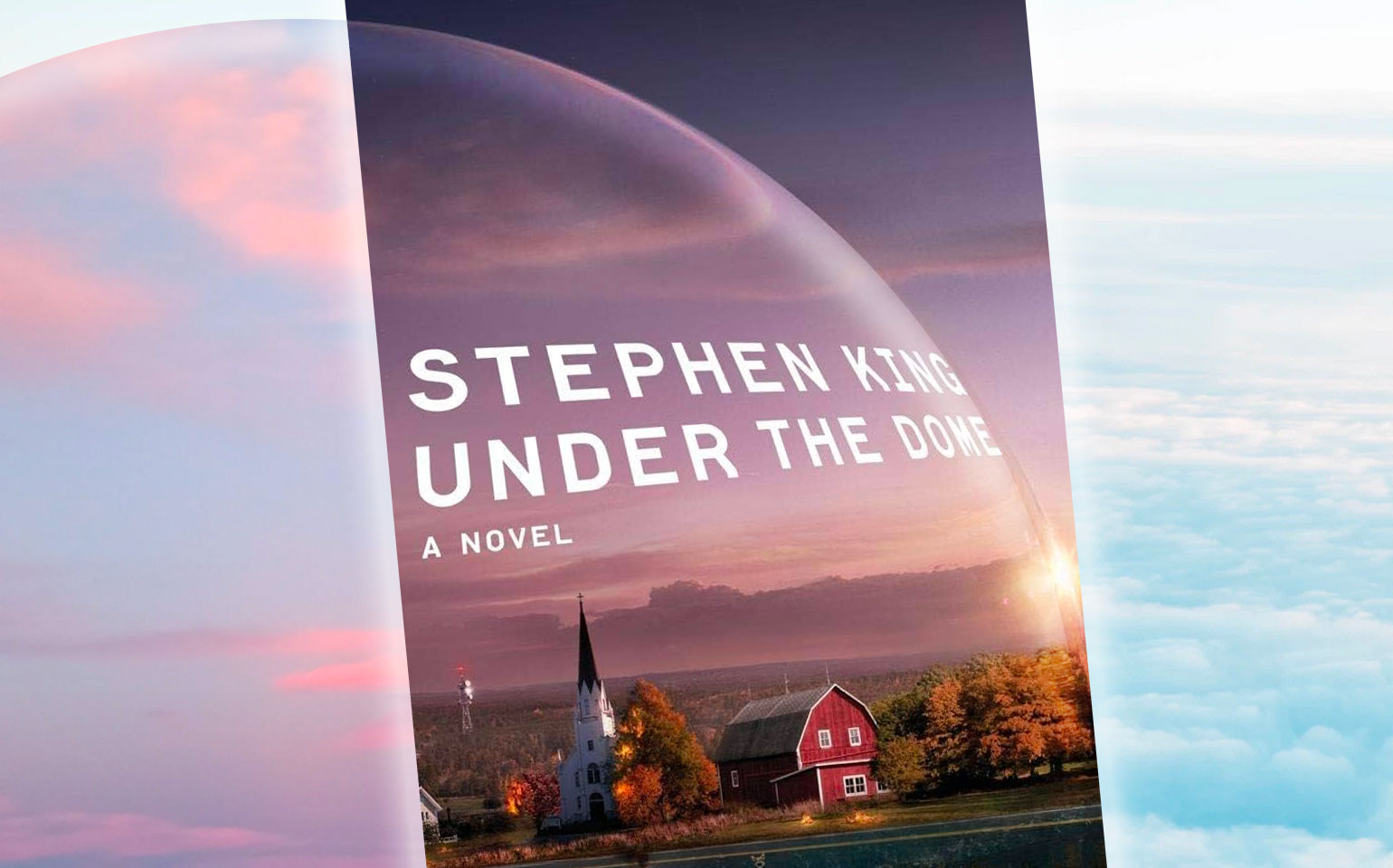
Under the Dome: A Reflection on Society’s Fractures and Resilience
When Stephen King’s Under the Dome was released in 2009, it immediately captivated me with its intriguing premise: an invisible, indestructible dome encapsulating a small Maine town, severing its residents from the rest of the world. My fascination with narratives that utilize extraordinary circumstances to mirror society’s intricacies was significantly piqued by King’s storytelling. The book isn’t merely a survival tale, it is an elaborate stage set for the dissection of human nature, encased in a scenario as confining as it is revealing. This sudden, inexplicable isolation provides a unique vantage point from which to observe the fragility and resilience of societal constructs and individual morals under pressure.
Under the Dome serves as a microcosm of society, a profound examination of how individuals and communities respond to an unprecedented crisis. The dome’s sudden appearance over Chester’s Mill subjects its inhabitants to an intense scrutiny of their morals, ethics, and the very fabric of human decency. King adeptly intertwines the destinies of the townsfolk, from Dale “Barbie” Barbara, an ex-soldier haunted by his past and seeking redemption, to Big Jim Rennie, a power-hungry local politician who sees the dome as an excellent opportunity to cement his authority. The narrative expands to include a rich tapestry of characters, each bringing their own complexities and contributing to a broader commentary on power, resilience, and the human spirit.
My journey through the pages of Under the Dome was marked by intense curiosity and introspection. I often found myself contemplating my own reactions to such an extraordinary situation. Would I display resilience and leadership, or would the isolation and tension unveil a less flattering side of my character?
King masterfully portrays the town’s descent into chaos, a vivid illustration of how fear, power struggles, and scarcity can erode the foundations of civilized society. This stark portrayal serves as a poignant reminder of how quickly the veneer of normalcy can disappear, leaving raw human nature exposed to the challenges of survival and moral ambiguity.
One of the novel’s most compelling layers is its nuanced commentary on environmental and political themes. The dome acts as a potent metaphor for our planet, a closed ecosystem wherein every action has immediate and often irreversible impacts. Through this narrative device, King delves into critiques of humanity’s stewardship of Earth, weaving a narrative that is as much a cautionary tale about climate change and pollution as it is about human resilience and adaptability. The closed environment of the dome mirrors the global environmental crisis, urging readers to reflect on their collective responsibility towards sustainable living and the preservation of our planet for future generations.
While Under the Dome is a compelling narrative, its vast ensemble of characters and complex subplots can sometimes overwhelm the reader, making it a challenge to stay connected with the core story. For instance, the multitude of minor characters and their individual arcs, like the detailed backstories of the town’s residents, can diffuse the focus from central figures such as Barbie and Big Jim, potentially diluting the narrative’s impact. Additionally, King’s approach to thematic exploration, particularly his commentary on environmental issues, can at times feel overly explicit, as seen in the frequent, direct discussions about the dome’s ecological effects on Chester’s Mill, which might come across as didactic rather than seamlessly integrated into the storyline. These elements, while aiming to enrich the narrative, can occasionally sidetrack the reader from the novel’s primary themes and character developments.
Despite these critiques, Under the Dome remains a pivotal work in King’s oeuvre, resonating deeply with contemporary societal concerns. It compels readers to confront the delicate balance of civilization and the underlying currents of good and evil inherent in human nature. The book left me with a profound sense of reflection on the nature of leadership, the importance of community solidarity, and the depths of human capacity for both benevolence and malevolence.
Stephen King’s Under the Dome is a rich and ambitious exploration of society in the throes of crisis. While not without its flaws, the novel’s ability to simultaneously entertain, engage, and provoke thought is unparalleled.
It stands as a powerful reminder of the critical importance of empathy, cooperation, and environmental consciousness in our increasingly polarized and fragile world. For those willing to embark on this challenging yet rewarding literary journey, “Under the Dome” offers a unique perspective on the complexities of human nature and the societal bonds that hold us together, making it a timeless piece that continues to inspire and provoke dialogue among its readers.



